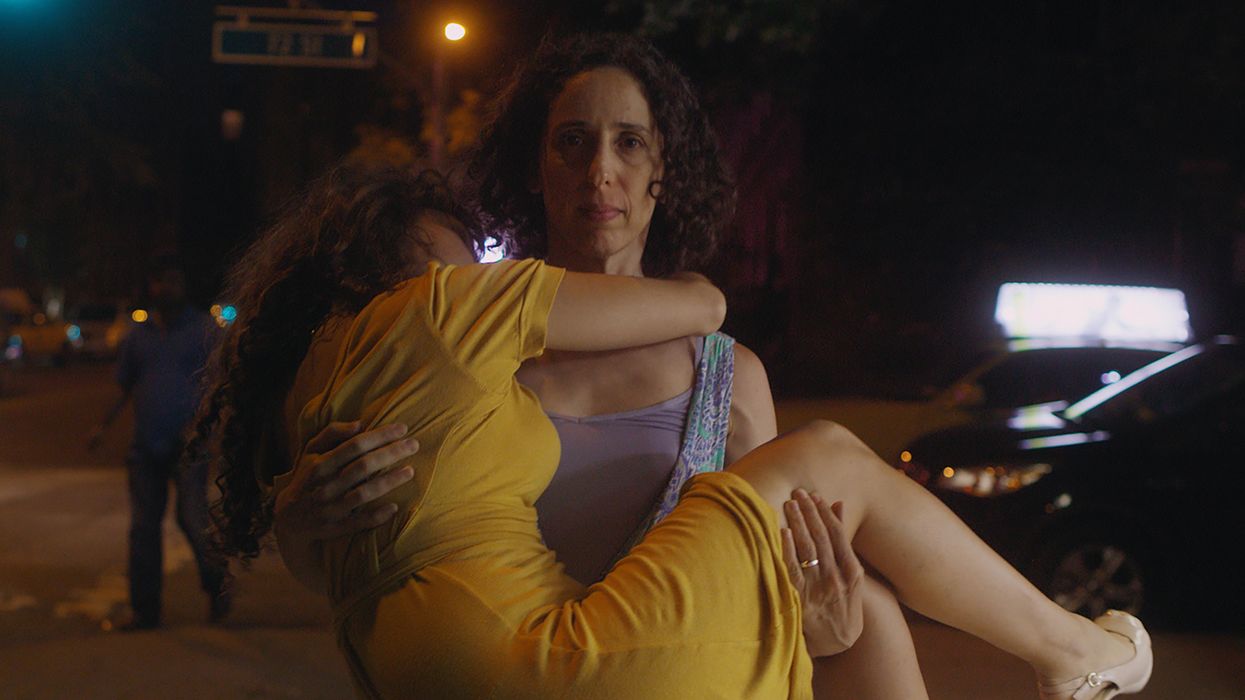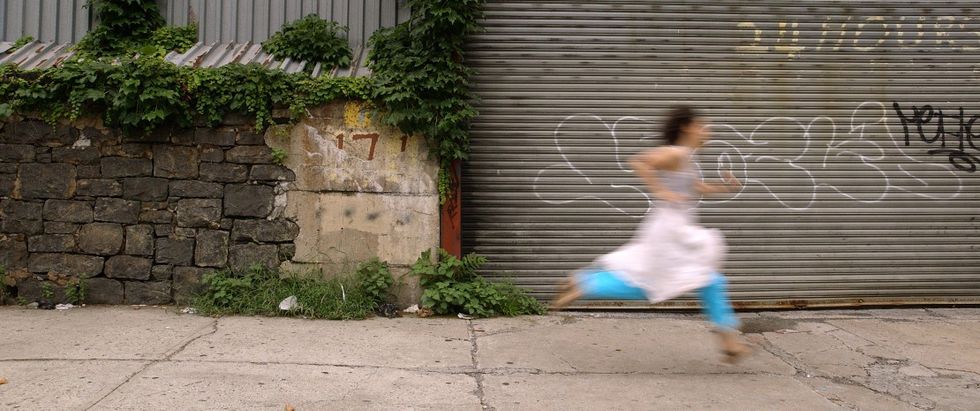5 Ways to Be Your Own Best Script Doctor
Director Ela Thier shares some tips on how to beef up that final draft.

[Editor’s Note: No Film School asked Ela Thier to share this advice upon the upcoming digital release of her film ‘Tomorrow Ever After’.]
I've been teaching screenwriting and filmmaking since 2006 under the alias of "The Independent Film School" and have trained a couple thousand writers, actors, and filmmakers. I've written over twenty features myself, and four of those ended up on the big screen. Like many writers, I began to produce and direct my own works by necessity, and most recently I released my new film, Tomorrow Ever After.
One thing that I learned along the way is that revising a screenplay doesn’t have to be a treacherous process fraught with insomnia, emotional eating, and existential angst about whether you’re a real writer. Fixing a script can be like seasoning a delicious soup. Mmm… just a tad more garlic…
Here are a few specific steps you can take to revise your own work before taking it out to a test reading or an expensive script doctor.

1. Identify what you love about the script
Make an exhaustive list of what you like about your script. Don’t skip this step and don’t skimp out. In my experience, it’s the most important aspect of the revision process. You can’t enjoy seasoning a soup if you hate the soup.
What do you love about your script? You can be super broad or super specific: I like that it shows a woman being a genius; I like that it shows a guy being vulnerable rather than macho; I like Mandy’s character; I like that page 40 makes me laugh; I like that line of dialogue when he asks her what time it is. If you really get desperate, you can always take note of the excellent intention behind the script: “I like that I tried to write a guy being vulnerable.”
Don’t go down the road of “I like Mandy’s character but the other characters are crap”. Criticism is an addiction that renders the revision process impossible. Just stick with liking Mandy.
Great re-writing is often about more fully exploiting what’s great in a script.
A lot of us make the mistake of thinking that the revision process is all about fixing problems. Great re-writing is often about more fully exploiting what’s great in a script. You want to find those elements that sparkle, and then expand on those elements.
Back in college when I wrote one of my first feature scripts and asked my boyfriend at the time to read it, all he said was: “I like the relationship between Jake and Dora”. In hindsight, I realize how generous he was. It was a poorly written script and he must have been bored to tears reading it. But yeah, this very minor character, Dora, was the most interesting part. She was the character that I identified with and she was the easiest to write.
When he made that comment, I got excited about getting rid of everything else in that script and writing it from scratch, focusing only on Jake and Dora. The writing became way more fun and things began to pop. I ended up optioning that script and, when it sold, I paid off my college loans with it.
What you love about a script is your best guidance. A common first draft problem is not fully maximizing the most entertaining and moving aspects of the script.

2. Avoid creating a laundry list of problems
That useless laundry list of everything that’s wrong with your script will not lead you to a better draft—it will lead you to checking the fridge and calling your ex. Being mega critical is not the sign of intelligence and discerning taste; it’s the sign of a writing block and there ain’t nothing intelligent about it.
The laundry-list-of-problems approach is an exercise in futility because most of the problems in a script will usually stem from one single issue. That master script doctor identifies that one key issue which, when solved, makes most of the other problems go away.
The only time the laundry list is called for is when a script is nearly finished and you’re polishing it up. The sequences are all in place. Every character, location, and scene is there for a reason. You can’t friggin’ wait to shoot this thing. Now you can tweak and tweak the details to your heart’s desire. Mmm… just a tad more garlic…

When it comes to being your own best script doctor, I have good news: what’s great about a script will differ from script to script. But the stuff that’s not working is pretty much always the same. So let’s look at what “The Key Issue” in your script is likely to be, below.
3. Make your character sweat
In 95% of the scripts I see that don’t quite work yet, the issue is lack of conflict. When I say conflict, I don’t mean bad things happening. I don’t mean people hating each other or disagreeing or yelling at each other. By conflict I mean someone wants something but something’s in the way.
If I walk down the street and a truck drives by and splatters me with mud, that’s not conflict. That’s just a crappy thing that happened. If I walk down the street on my way to attending an interview for my dream job and a truck drives by and splatters me with mud: we have conflict. I have a goal and something got in the way. If I have three hungry children and I spent every last penny on my outfit for this interview, then a truck splatters me with mud: now we have a movie!
I like to think of my character as that last bit of toothpaste in the tube. Squeeze them hard so they have to come out.
Conflict doesn’t even have to mean that something bad is happening. If my boyfriend and I are psyched about spending my birthday evening alone together, and my best friend shows up unannounced with 30 people for the surprise party they’ve been planning: we have conflict. I wanted something and an obstacle is in my way. There’s conflict here even though two totally awesome things are happening.
If a particular scene isn’t working, or the script overall isn’t a page-turner, check to see if the script is suffering from lack-of-conflictosis. Does someone clearly want something? Are they taking actions to achieve it? Do they want it badly? Anything you can do to raise the stakes so they have to take actions and no longer dawdle?
I like to think of my character as that last bit of toothpaste in the tube. Squeeze them haaaard so they have to come out. Maybe that boyfriend of mine leaves the country the next morning so I have to make my best friend those 30 people go away even though they’ll be heartbroken. The harder your character has to sweat, the more engaged that your reader and audience will be.

4. Fix a plotty plot
The second most common issue in most scripts is being overly plotty. Sure, the inciting incident is on the right page and all that jazz, but it feels like a paint-by-numbers screenplay. You can fix this issue by focusing on the script’s key relationship.
The best parts of most movies are their key relationships. If Spider-Man were all about the Green Goblin, we’d have a video game. Spider-Man is about Mary Jane. The biggest, splashiest, most action-driven blockbusters stick to the ribs if, at their core, they’re really about a relationship.
Go through your script and figure out how the key relationship has moved forward every ten pages or so. You could even create an outline that ignores the plot and just traces the progression of that key relationship:
- Pg 10 - Sam and Lisa meet when they both get locked out of the laundromat and their clothes are inside. They hate each other.
- Pg 20 – They’re stuck having to work together. They’ll suck it up and deal.
- Pg. 30 - Lisa covers up for Sam when the boss catches a mistake.
- Pg 40 – Sam reveals his big secret and Lisa now understands why he works there.
- Pg 50 – They have an opportunity to split ways and work apart but they choose to work together.
- Pg 60 – Sam discovers that Lisa is pregnant from an ex-boyfriend and is disgusted with her.
- Pg 70 – Sam, masking his heartache, quits the job and they split for good.
- Pg 80 – Sam begs her not to get an abortion and offers to parent with her. Or Sam discovers that Lisa is an alien and becomes protective of her. Or the Green Goblin comes to get her...You get the point. Focus on the relationship.
Every good story is ultimately about a relationship. If the key relationship keeps hitting the same note rather than evolving, make sure it evolves. This will turn a plotty script into a character-driven story, which generally makes for a more successful movie.
Their big important decision at the end of the story can be huge or tiny in scope, but it’s always huge in meaning.
5. Create a meaningful ending
When a script is well written, we intuitively get your character’s “issue” (or the issue they’re up against that some other character embodies) the moment we meet them. We instinctively know we’re about to watch a drama unfold wherein your character makes a change. If they’re afraid to commit, we’re going to see them commit. If they avoid fighting, we need to see them fight. We don’t care if they win or lose. We don’t care if they get to be with the person they finally decided to commit to, but we need to see them make that commitment.
Their big important decision at the end of the story can be huge or tiny in scope, but it’s always huge in meaning. Now that they chose to fight, they can wreck a whole city to save it from the monster. It could also be as simple as a character picking up the phone to finally call their mother. What makes an ending splashy is how meaningful their “Big Decision” is at the end of the story.













